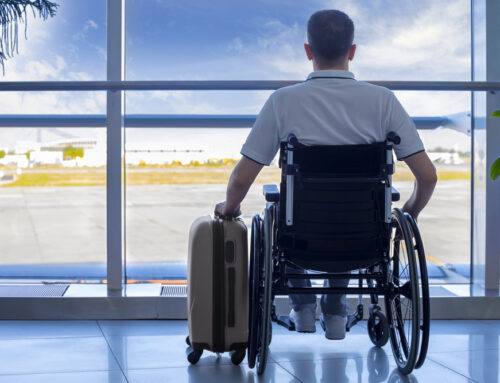Hard and Fast Rules For Protecting Your Devices While Traveling

How To Stay Safe and Protected Online When Traveling

Today, more people are on the go and using the Internet to book hotels, flights, and activities while they are traveling. This means exposure to new dangers for users who want to stay safe and protected online when traveling. In addition to the standard risks that come with any online interaction (like malware or trustable sites being compromised by hackers), many pitfalls are unique to travelers because of the sensitive nature of their personal information. If your next trip involves checking into hotels or renting an apartment on-site, keep reading to learn what you should know before you boot up your laptop and unpack your suitcase.
Use A Virtual Private Network (VPN)
A virtual private network (VPN) is a secure network connection that you create between your computer/device and a remote server. This protects your device by encrypting all data that travels between you and the server, preventing others from spying or interfering with your connection. This includes:
- WiFi networks – You can use VPN to encrypt your data while traveling. A VPN will keep your data safe if the hotel WiFi isn’t secure (and it often isn’t).
- Public computers – If you need to use a computer that isn’t yours, you can use a VPN to ensure your data stays secure.
- Public networks – When traveling, you often have to use a network that isn’t private. A VPN will keep your traffic safe from prying eyes.
Protect Your Devices With Strong Passwords And Lock-screen Settings
When you’re away from home and have access only to someone else’s devices, you have to be extra cautious because you can’t control the security settings. An excellent first step is replacing default passwords with powerful, customized ones. If you happen to be staying at a hotel, they may have a publicly-accessible computer that you can use to access your email and change your password. If you have to use a public computer, you can also try typing your password backward and storing it as a sticky note on the monitor. Alternatively, you can use a virtual keyboard to type your password backward using your smartphone. Finally, lock-screen settings on your device can alert you if someone tries to log in or access sensitive data. You can find instructions for setting up these settings for your device here.
Remove Sensitive Data From Your Devices
You might need to keep your frequent flyer miles, driver’s license, or other sensitive information when you travel. However, this data is some of the most vital information to protect when you’re on the road. You can use an external hard drive, password vault, or other data management app to keep sensitive information off your primary device. You can also store sensitive information on the cloud with a service that encrypts your data. This way, even if your device is stolen, its data can’t be accessed. It’s essential to remove sensitive information from your devices before traveling internationally.
Make Sure You Have Anti-Virus Protection
Computer malware and ransomware attacks are widespread. In fact, you’re 2 times more likely to get hacked while traveling than at home. Anti-virus software will help protect you from many of these threats. However, it’s essential to make sure that you’re using it correctly before you travel so that you don’t accidentally cause any problems for yourself. We recommend reading our guide to staying safe online while traveling and ensuring you have the latest updates for your anti-virus software and
antimalware tools for mac before you go.
Conclusion
While you might be excited to travel and see new places, taking precautions to stay safe and protected online when traveling is essential. This can be a tricky process, but there are many things you can do to protect yourself, starting with the points mentioned in this post.




